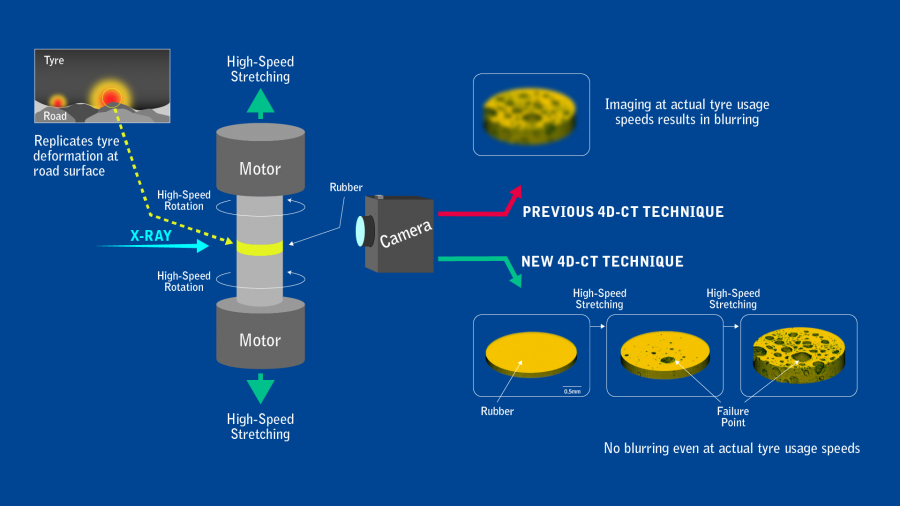Falken Tyres’ parent company, Sumitomo Rubber Industries (SRI), in collaboration with Tohoku University have successfully increased the speed of X-ray CT imaging of rubber failure by approximately 1000-fold. This marks the next evolution of Falken Tyres’ new material development technology and its proprietary 4D Nano Design Technology.
Collaborative research between SRI and Associate Professor Wataru Yashiro of the Institute of Multidisciplinary Research for Advanced Materials (Tohoku University) has resulted in the achievement of approximately 1000-fold increase in the speed of 4D-CT (4-Dimensional Computed Tomography) imaging.
The 4D-CT technique involved in this research was originally developed by SRI as part of the Advanced 4D Nano Design Technology, which was first unveiled in 2015. The joint research brought in SRI’s extensive knowledge on rubber with Associate Professor Yashiro’s world’s fastest CT imaging technology.
This breakthrough makes it possible to observe rubber failure as it occurs during actual tyre usage at varying speeds, with the aim of improving rubber wear performance. However, up until now, it took several seconds to capture a single 3D image using the existing 4D-CT technique.
As a result of this joint research, the 3D image can now be captured in around 1/100 of a second. This advancement allows for continuous, high-speed observation of rubber failure phenomena in three dimensions and under conditions that can better approximate the state of tyre rubber during actual wear.
SRI plans to utilise this technology not only to accelerate the development of new tyre materials to provide superior wear resistance, greater environmental friendliness and longer service life, but also to develop new materials in order to achieve further advancements in their Smart Tyre Concept; SRI’s concept for the development of tyres and peripheral services.
Following this breakthrough, SRI and Tohoku University will move ahead with the development of a multi-beam 4D-CT technique that will deliver ultra-high speed 4D CT imaging. Using this technology with machine learning, SRI will aim to develop more advanced materials in the future.
